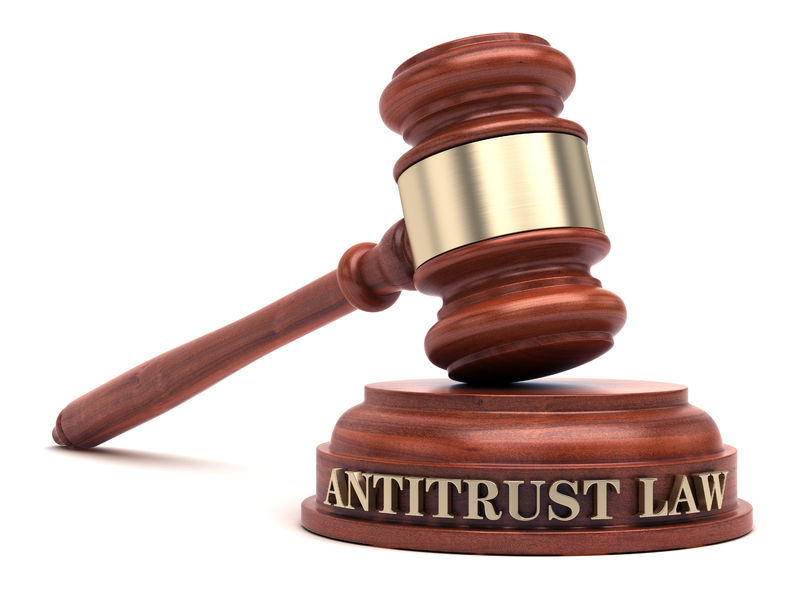Mastering Wage and Hour Law: Essential Insights for Legal Professionals
Ronald Allan Desiderio2024-05-30T03:47:57-04:00The complexities of wage and hour laws present a significant challenge for legal professionals navigating the intricacies of compliance and litigation. The continuous updates to the Fair Labor Standards Act (FLSA) and other related regulations demand a thorough understanding of both federal and state-level changes to ensure proper employee classification and compensation. In this CLE webcast, a panel of thought leaders organized by The Knowledge Group will provide an in-depth discussion about the insights into the latest regulatory developments, recent court decisions, and emerging issues in wage and hour law. Speakers will provide practical strategies for avoiding common pitfalls and ensuring compliance with the FLSA.
How to Navigate Employment Contracts: Understanding the FTC’s Ban on Noncompete Clauses
Ronald Allan Desiderio2024-07-19T01:44:19-04:00In today's competitive job market, understanding the implications of the FTC's Ban on Noncompete Clauses is essential for both employees and employers, as it significantly alters the landscape of employment agreements. By delving into the nuances of noncompete clauses within the framework of FTC regulations, participants will acquire valuable insights into effectively navigating these clauses and ensuring compliance with the latest legal developments. Come and join a panel of prominent thought leaders and practitioners assembled by The Knowledge Group as they delve into the intricacies of noncompete clauses and gain a comprehensive understanding of the FTC's ban in the realm of employment agreements. In this interactive course, you’ll gain valuable strategies for negotiating, modifying, or challenging noncompete agreements within the bounds of the FTC's regulations.
Unveiling the Impact: Notable Developments Shaping Restrictive Covenants
Ahmed Zidan2024-04-22T21:05:30-04:00Wage & Hour Compliance: How to Avoid Common FLSA Pitfalls
lazupardo2023-05-18T22:37:12-04:00According to the Fair Labor Standards Act (FLSA), employers are responsible for ensuring that their employees are properly classified and compensated. The U.S. Department of Labor’s recent changes to regulations governing overtime-exempt status, independent contractor classification, and tip credit rule further expands wage and hour laws. Failure to comply with these provisions can result in serious consequences, such as costly fines, litigation, and reputational damage.
Protecting Trade Secrets and Company Assets with Non-Compete Agreements
Ahmed Zidan2023-02-22T08:43:31-05:00A non-compete agreement is crucial for protecting a company’s trade secrets and other valuable assets from employees who leave the business. However, some organizations fail to include legitimate restrictions for employees' conduct even after their employment ended, exposing them to risks. More so, the potential for misappropriation or theft of trade secrets. This underscores the need for businesses and their counsel to be well-versed in drafting sound non-compete agreements and be abreast of emerging developments to be able to structure preventive measures and mitigate potential risks.
Independent Contractor Under the Fair Labor Standards Act: Navigating Complexities
lazupardo2022-12-25T20:53:50-05:00Worker misclassification has perpetually posed serious challenges for many businesses and companies alike.
The Future of Restrictive Covenants Under the Biden Administration
jordan2023-07-05T01:37:36-04:00Restrictive covenants are enforced under the standards of reasonableness, recognizing the balance between protection and free competition.
Collective Bargaining Agreements (CBA): Critical Issues and Strategic Practices Explored
Joenel2022-12-25T21:08:07-05:00The past two years have seen the undeniable growth of collective bargaining agreements (CBA) in both the public and private sector workplace.
Restrictive Covenants and Non-Compete Agreements: Trends, Developments, and Best Practices
Ahmed Zidan2022-12-27T21:55:39-05:00Over the past years, multiple states have enacted and amended laws against unfair competition. However, the push to widen the scope of banning restrictive covenants and non-compete agreements raises concerns among employers, especially in protecting important company assets and trade secrets.
The DOJ’s “No-Poach” Agreements: Navigating Implications to the Year Ahead and Beyond
Iwork OJT2022-09-29T04:54:37-04:00Regulatory uptakes on anti-competitive restrictions in labor markets is expected to ramp up with the Department of Justice (DOJ) Antitrust Division and the Federal Trade Commission (FTC) in the lead. Recently, the DOJ filed Statement of Interest on several pending cases to provide courts with significant guidance on the analysis of “no-poach” agreements and clarified that alleged cases of “no-poach” agreements do not automatically warrant per se review.
The Dangers of Employee Misclassification: An Employer’s Guide to Avoid the Risk
Iwork OJT2022-10-03T02:42:07-04:00Issues concerning employee misclassification continue to grow, as employers often misunderstand the legal distinctions between employees and independent contractors. While many employers are tempted to hire and classify their workers as independent contractors, they often fail to appreciate both the legal requirements necessary to accomplish this, and the disastrous financial outcomes that can result from their mistake. It is essential that employers understand and follow the complex and often confusing rules issued by state and federal agencies as well as the U.S. courts.
COVID-19: Immediate Issues Facing Employers
Iwork OJT2021-05-05T03:19:18-04:00The COVID-19 virus has posed unprecedented challenges for employers of all sizes. Agencies at the federal, state, and local levels are issuing a stream of guidance and orders that are updated on a daily basis. Relatedly, employers are trying to familiarize themselves with the obligations imposed and benefits conferred by a barrage of new legislation.
Employment Class Actions: The 2020 Landscape Explored
Iwork OJT2022-10-28T01:20:09-04:00Class actions alleging labor law violations continue to hound employers throughout the country. As the volume of these cases increases, new court rulings also continue to emerge and reshape the litigation landscape. Anticipated court rulings which employers should follow in 2020 include Retirement Plans Committee Of IBM v. Jander, et al., Intel Corp. Investment Policy Committee v. Sulyma, et al., and Thole, et al. v. U.S. Bank, N.A.
Trends and Developments on Independent Contractors Classification: A Practical Guide
Iwork OJT2021-04-30T05:34:43-04:00Classifying whether a worker is an independent contractor or an employee is crucial for businesses. However, although most employers try to do it right, many of them still misunderstand the legal distinctions between the two. This typically results in worker misclassification, making employers at risk of enforcement actions and financial penalties.
















